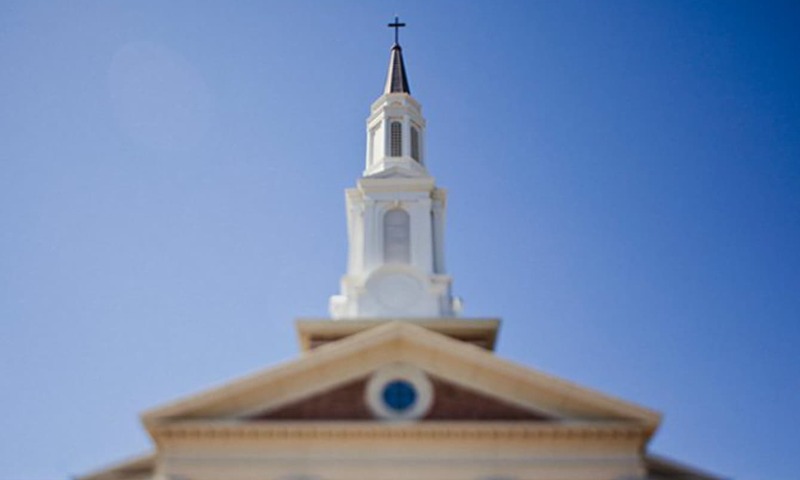Church matters, and because church matters, what we mean by church matters.
The New Testament presents the church as both universal and local, but its emphasis is overwhelmingly on specific local congregations — gatherings of believers committed to living out the gospel together. The New Testament shows that the church isn’t just a place we go — it’s a people living on mission together. It does not require a steeple, but it does require people.
Of course, defining what makes a church biblical can be tricky. Many groups call themselves churches but don’t function as the New Testament describes. Church expressions vary across time and culture, yet I think six essential marks define what a biblically faithful church actually is.
These marks are true in every context — from a house church in China to a megachurch in Rio. But how they play out will look different depending on the culture. That’s where contextualization matters.
So, let’s walk through these marks and talk about what they look like in different contexts.
1. Scriptural Authority: A Church Rooted in the Word
A church that isn’t anchored in God’s Word isn’t a church — it’s just a social club with religious overtones. The apostles consistently pointed to Scripture as their authority. Peter did it at Pentecost (). Paul did it in the synagogues (). Paul made it clear in that Scripture is the foundation for teaching, correction and training in righteousness.
But let’s be honest — many churches today function more like self-help centers than gospel-proclaiming communities. Some drift into motivational talks, while others let cultural trends dictate their theology.
Churches must lean into scriptural authority in contextual ways. In the West, where biblical literacy is declining, churches can emphasize and theological depth. People don’t just need inspiration — they need formation.
In oral cultures, like parts of Africa or South Asia, scriptural authority may be expressed through storytelling and communal recitation of God’s Word rather than a printed Bible study. In places where persecution is real — think North Korea or parts of the Middle East — churches often gather around memorized Scripture because they can’t access written copies.
The methods vary, but the authority of God’s Word remains non-negotiable.
2. Biblical Leadership: A Church Led by Called and Qualified Leaders
Churches need leaders. Period. Leaders matter. Period. The New Testament clearly shows that churches had elders, , deacons and other leaders equipping the body (, ). Leadership isn’t optional — it’s biblical.
That said, leadership structures aren’t one-size-fits-all. A church in the U.S. might have a well-defined elder board and formal staff, while a house church in China might operate with shared leadership to avoid government attention. In some cultures, leadership looks more like a respected elder guiding a small group of believers rather than a formal pastor with a seminary degree.
Some churches lean too far toward hierarchy, while others reject leadership altogether. Both miss the biblical balance. The key isn’t the structure — it’s whether leaders are biblically qualified and equipping believers for mission.
3. Preaching and Teaching: A Church That Proclaims Truth
A church that isn’t preaching and teaching God’s Word, might do some good things, but it is missing an essential part of being a church.
The early church devoted itself to the apostles’ teaching (). Paul told Timothy to preach the Word — in season and out of season (). Faithful preaching isn’t just an add-on to worship; it’s central to how God shapes his people.
But how that preaching looks will vary. In Africa, where oral traditions are strong, preaching often involves storytelling and repetition to reinforce key truths. In the U.S., where attention spans are shrinking, some churches project outlines and use creative illustrations. That’s fine, as long as they don’t sacrifice biblical depth (the Sermon on the Mount is less than 20 minutes long, after all). In persecuted contexts, like some of the Islamist Muslim contexts, preaching sometimes happens through whispered Bible studies in homes or over encrypted messaging apps.
Preaching must always be biblical, but its format can (and should) be adapted to the context.
4. Ordinances (or Sacraments): A Church That Practices Baptism and the Lord’s Supper
Jesus commanded his followers to baptize new believers () and to celebrate the Lord’s Supper (). The early church did both, and so should we.
And, again, the way these ordinances are practiced varies. In the West, baptisms often happen in church buildings or pools. In the Middle East, baptisms are sometimes done secretly at night to avoid persecution. In some tribal cultures, baptism may take place in a communal river, making it a highly public declaration of faith.
The Lord’s Supper, Communion or the Eucharist might be a formal ceremony in one setting or a simple meal in another. But as Paul reminds us in 1 Corinthians, it’s an act of, with a backward look at the cross (“in remembrance”) and a forward look at his return (“until he comes”).
5. Covenant Community: A Church That Lives as Family
Church isn’t an event you attend; it’s a community you belong to. The early church in didn’t just meet together — they lived together, shared resources, prayed for each other and held one another accountable.
In collectivist cultures, like many in Asia and Africa, covenant community comes naturally because family and group identity are central. In the individualistic West, churches must work harder to cultivate real community through small groups, discipleship and shared mission. In persecuted contexts, community often forms through necessity — believers rely on each other for spiritual and even physical survival.
Biblical churches aren’t just a crowd of attendees; they’re a covenant family. This includes caring for one another and holding one another accountable — which churches should do, though it has fallen out of favor today.
6. Mission: A Church That Goes and Sends
Jesus didn’t tell his disciples to stay — he told them to go (). The early church spread the gospel everywhere they went, and mission must still be central to who we are.
In the Bible Belt, mission may mean pushing back against cultural Christianity and actually engaging lost people, serving our neighbors in Jesus’ name. In secular Europe, it might look like relational — building trust and having gospel conversations over time. In Muslim-majority countries, mission often happens through hospitality and quiet faith-sharing rather than public proclamation.
After all, the moment we’re in or the place where we live, doesn’t change the mission we’re on.
So, other things can be good — a good Bible study or a good worship gathering. They can even be Christian — a Christian group at work, or a Christian NGO. But to be a church is more than that. It takes intentionality to embody marks of a biblical church. Those marks must be universal if they are biblical — applied everywhere to every church. And these six marks meet the test of being biblical and universal.
and more by Ed Stetzer can be found on .
 ČŐČŐĹöşÝşÝÔęľĂľĂÔę2023
ČŐČŐĹöşÝşÝÔęľĂľĂÔę2023

.jpg)
.jpg)
